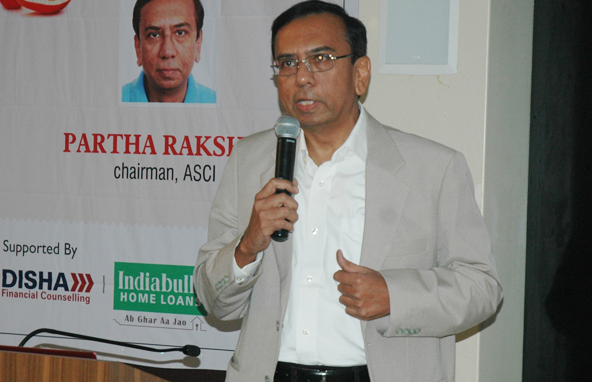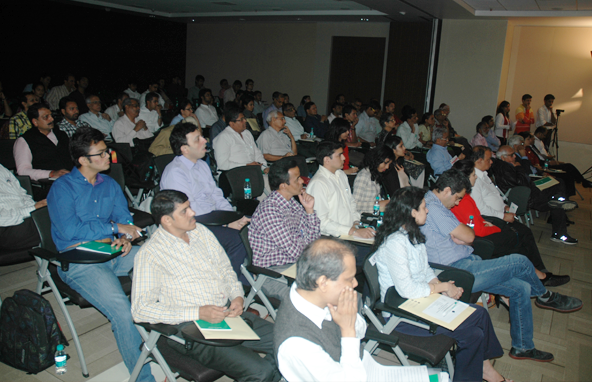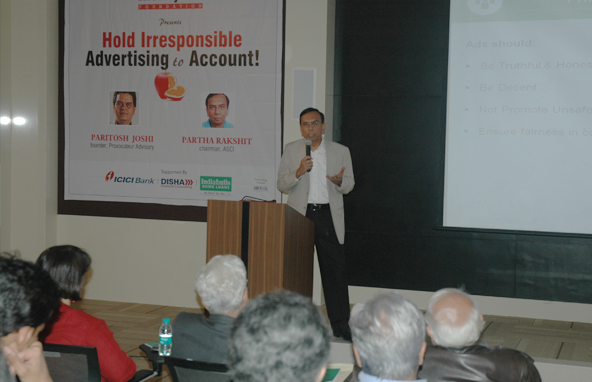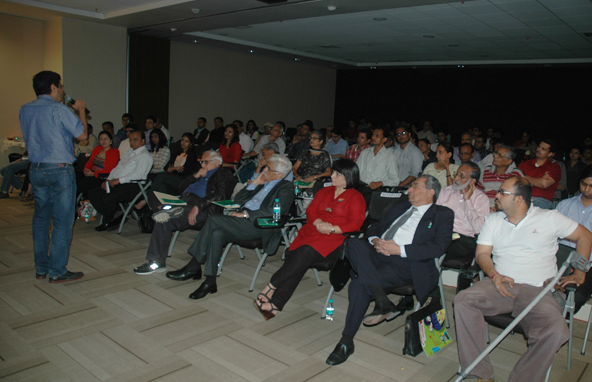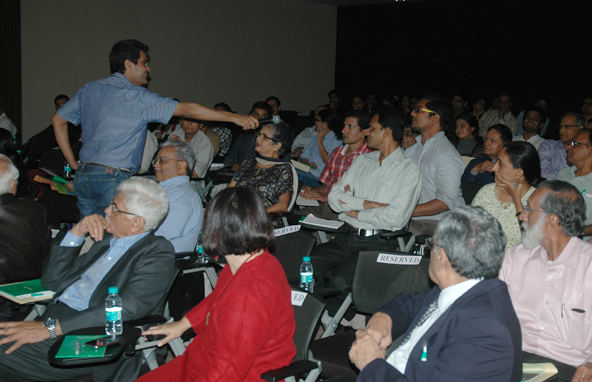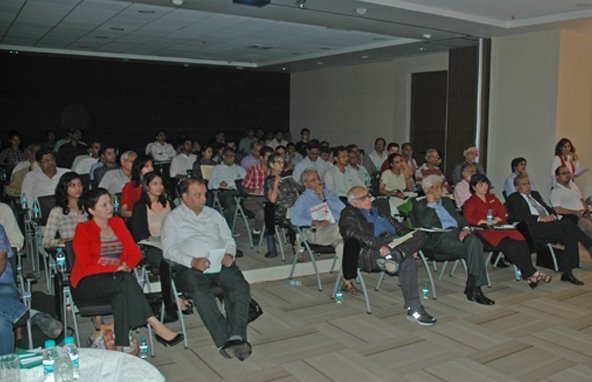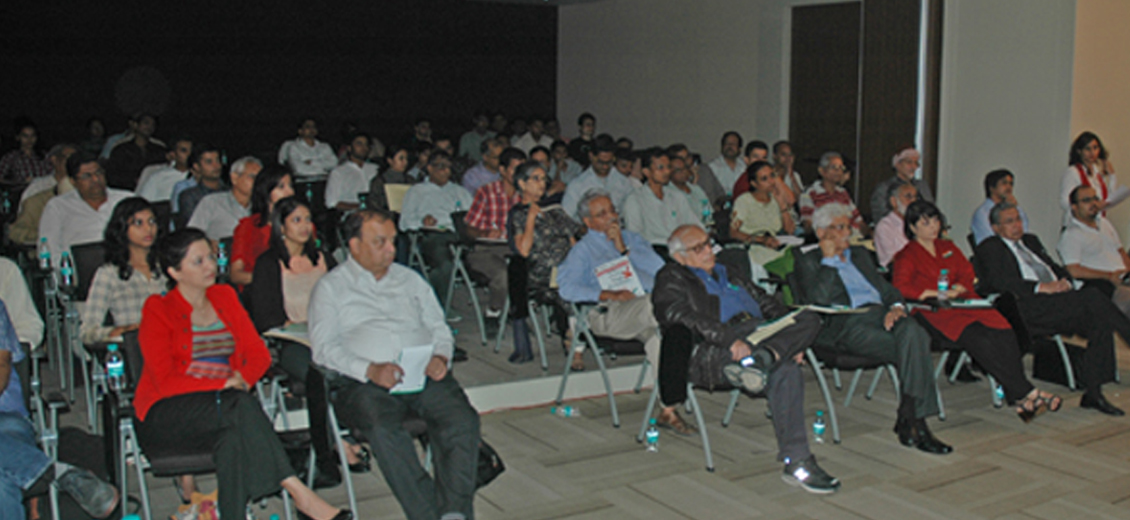
Advertisements have to adhere to a code of self-regulation prescribed by the Advertising Standards Council of India (ASCI). Yet there are several advertisements that are misleading or offensive. At a Moneylife Foundation seminar, Partha Rakshit, chairman of the Advertising Standards Council of India (ASCI), explained the role of ASCI in monitoring advertisements and its job in taking action against misleading and offensive advertisements.
Paritosh Joshi, member of the technical committee for the Broadcast Audience Research Council, took the audience through a fascinating interactive session explaining how complaints are upheld or rejected by the council. He invited volunteers to judge three ads to explain exactly how the ASCI committee works.
“A good self-regulatory system depends on all the stake holders and not just one regulatory body,” said Mr Joshi, emphasising that everyone should actively participate in reporting false advertisements. “The advertising code revolves around just four words—truthful, decent, safe and fair–to decide whether an advertisement is inappropriate. The ordinary point of view is most important factor” he said further.
Speaking on why ASCI should work as a censor body for advertisements, Mr Joshi said, “ASCI acts as a conscious keeper.” Screening thousands of advertisements would take much time and it would be better for ASCI to act as a moral police than work as a judicial body.
Earlier in the session, Mr Rakshit explained how about how one can file complaints and how the complaints are screened. “Under ASCI there is the Consumer Complaints Council (CCC) which upholds or rejects complaints,” he said. In October 2013, the Consumer Complaints Council (CCC) under the Advertising Standards Council of India (ASCI) has banned as many as 132 advertisements.
Among these are ads from prominent companies like Procter & Gamble’s Pantene, Dabur India’s New Fem Anti Darkening Hair Removal Cream, LÓreal India’s Fall Repair 3x shampoo, Hindustan Unilever (HUL)’s Dove Essential Nourishment Body Lotion and Fair & Lovely Fairness Cream etc.
In a bid to strengthen the process of reducing misleading advertisements which harm the interests of consumers, ASCI’s National Advertising Monitoring Service (NAMS) tracks advertisements nationally. As per the arrangement, AdEx India, a division of TAM Media Research, with support from ASCI trained personnel, checks on a continuous basis all newly released TV and Newspaper print advertisements, specifically for violation ASCI’s advertisement code related to unsubstantiated, misleading or false claims in the advertisement.
NAMS monitors 45,000 newly released ads appearing in all leading newspapers (covering approx. 80% national readership) and 1,500 TVCs every month in all languages. Advertisements seen as potentially violating Chapter 1 of ASCI Code are then forwarded to ASCI on a weekly basis. ASCI takes suo motu cognizance of Ads potentially violating Chapter 1. NAMS reports all advertisements that could be misleading, false or based on unsubstantiated claims.
Ms Sucheta Dalal emphasised that there is a need for a common code that brings banks and insurance companies on par with mutual funds While toxic insurance products were sold to the gullible investors nothing is been done to stop false advertisements. Since the banking regulator has no rule on misleading advertisements, banks too can get away by mis-leading consumers by showing a higher return
She further said, the only regulator to fix the problem of mis-selling of mutual funds is the Securities & Exchange Board of India (SEBI). Its definition says, mis-selling is not restricted to false statements, but can also happen by ‘concealing or omitting material facts’ or ‘concealing associated risks’ and not taking care to ensure ‘suitability of the scheme to the buyer’.
Investors have the option of complaining to the Advertising Standards Council of India (ASCI), but that may not work either. ASCI’s advertising code, which is the strict yardstick by which its complaints committee judges advertisements, does not provide for the peculiar nature of financial advertisements, which cause great financial damage by simply omitting key details.






